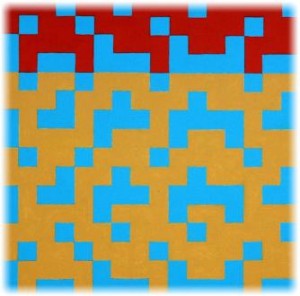 My first grown up writing job was with an advertising and communications consultancy. My boss was a former accountant with a degree in economics. But his real passion was for words.
My first grown up writing job was with an advertising and communications consultancy. My boss was a former accountant with a degree in economics. But his real passion was for words.
‘Tell a story,’ he used to say. ‘And tell it in the plainest language that you can. Make it interesting, but be direct, be concise, and keep it simple.
‘And don’t let anyone tell you that simple means childish. Child-like, perhaps – but child-like has much to commend it. When did you last hear a seven-year-old use words that you didn’t understand?’
Not everyone subscribed to Don’s philosophy. One of the old hands used to grumble that he hadn’t spent 30 years hunched over a typewriter in order to write ‘for morons with a reading age of seven’. And, to prove it, he often peppered his prose with words like grandiloquent. But David, the former sub-editor turned copy supervisor, was on to him. Grandiloquent rarely – if ever – made it into print.
Don’s other advice was to steer clear of anything abstract. ‘Leave abstraction to the painters,’ he used to say. ‘Jackson Pollock can do abstract. You stick to concrete.’
I thought of Don recently while I was listening to ‘an expert’ explaining how to solve a social problem has, thus far, proved resistant to all of the usual approaches.
‘We should treat the whole minefield as a new landscape,’ he said. ‘We need to interrogate the intention. We also need to interrogate the data in order to glean the learnings. And of course we need to build new pathways. But most importantly, we need to kick-start the national conversation.’
Yeah right.
Is it any wonder that nobody seems to know what to do next?
